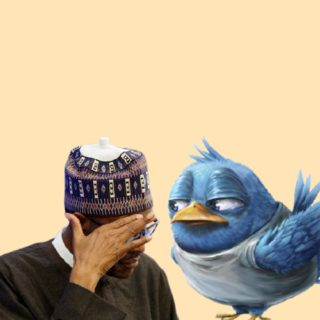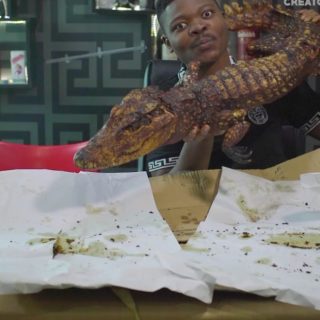What does the life of a Nigerian pastor’s child look like? Beneath the church programs and the excellence, what do they really struggle with? For this article, I spoke to 6 Nigerians who shared their stories with me.

Bolatito.
Being a pastor’s child hasn’t been a completely good experience. Yes, there are good parts, but the whole thing isn’t my choice so it’s hard to totally love something you didn’t choose.
I had to be in every single department in church. I also had to lead in whatever thing I was involved in because as a pastor’s child, I had to show an example by being the best. It was really hard for someone like me who likes to do things differently. I was beaten a lot. My father is extra; he demands perfection in everything. And now, as a pastor, that demand doubled. We had to put on a perfect front because the gaze of the entire church was on us and we could not afford to slip up.
At a point, my friends stopped talking to me because their parents used me as a metric of perfection that they had to follow. I was the good example, and each mistake they made was compared to my ‘goodness’ and magnified so much that they felt corrupt. Can’t you see her? Can’t you be like her? Eventually, they turned against me. And it was stressful, because I was suffering the perfection. If I did anything that was considered imperfect, I became a disgrace, and I was severely flogged. My father was generous with punishment. He flogged, scolded, and would even reduce my feeding allowance. Yet, I did everything he wanted.
I could not wear trousers, make coloured braids or use attachments. When I eventually left home, I began to do the opposite. It was a gradual thing. A pair of trousers, a coloured braid mixed with black. Even though I was no longer under his roof, I still had to do them in hiding. Whenever he was coming to school, my mother would call me to hide these things so he would not get wind of it. He caught me once with my hair tinted blonde and he almost killed me.

The only good part for me, I think, would be the ability to speak to large crowds. It was a result of always facing the church from a young age. My mum made it bearable. She was my support and told me that it was a matter of time before I left the house.
At home, I never really had friends too. I was the Pastor’s child; only a few people wanted to relate with me. Making friends in university showed me that I had the potential to write, sing and do other things, and I explored that side of me, but I was extremely careful. I got into freelance modeling, and my dad found out when a cousin posted a picture of me dressed in an outfit with a high slit. My father saw it, and went to print out a disownment letter and told me to sign it.
Being a pastor’s child gave me the confidence to address large crowds: Children’s anniversary and choir rehearsals didn’t go in vain. But despite this confidence, there are days I am depressed about being unable to express myself to my father. Sometimes, I don’t want to go to church but I have to because I am at home. In school, I don’t go regularly. I want to feel what it is like to be an ordinary church member, free from all the responsibilities and the scrutiny.
I still have this desire of wanting to be first in everything because it is what was drummed into me. I want to be listened to, but I don’t listen to others. I want to be in front and lead, and if I don’t get the chance to be first in something, I feel the urge to destroy that thing entirely.
David.
The thing with being a Pastor’s child is that you get to see the human side of your parents, their blunders and mistakes and so this creates a disconnect in your head as you try to reconcile the holy, Christian part of them with the flawed, human side of them. The way I dealt with this was understanding that they were humans first of all and were trying to attain a high level of faith. Once I accepted this, the rest fell in place. Of course, this means you start to question a lot of things and this can lead to a crisis of faith. I think this is why a lot of pastors’ children go through a rebellious phase.
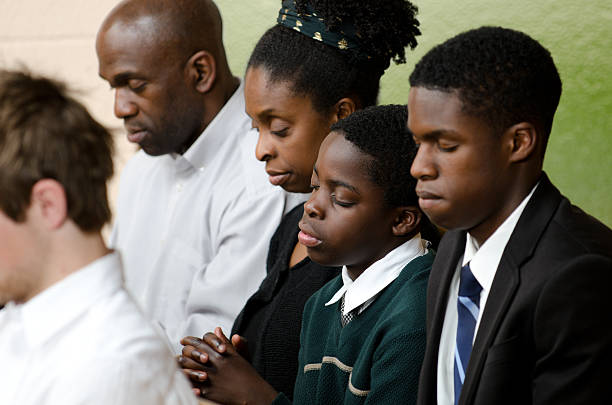
The part I struggled with the most, was the expectations people have of you. I still struggle with it now. I try to do things a certain way just so that I don’t bring disrepute to my parents. It can be crushing, and at some point, you reach a boiling point where you just can’t pretend anymore, and this is where you feel the urge to go overboard and want to try all the vices at once. This happened to me while I was away from home on IT in another state. There was no monitoring, I had my life to myself for once, and I decided to explore. Thankfully, I didn’t grow a taste for all my explorations.
Another stressful thing about being a pastor’s child is the constant morning devotions and vigils too. Good God! The problem with this is that because you aren’t the ones making the decisions, it starts to feel like a tiring chore and you just want to be done so you can get on with your day or sleep. It doesn’t help matters that you can’t even eat or watch TV until the family has had morning devotion. And then on Sunday, just know that you are spending your entire day in church as your parents move from service to meetings and meetings. Thank God for one woman like that that used to bring food for us to eat in church.
Also, there was usually a lot of uncertainty in terms of finances. Even though my parents tried their best to keep this from us, I knew the church usually owed salaries and my parents would have to take on some jobs here and there to make sure everything evened out. And of course there’s bad reps for pastors, but a lot of them are really passionate about the church and their members. My parents sold their car and house to support the church that he was planting in a community.
But being a pastor’s child is not all bad A good part that usually made me happy was Christmas period when we would receive lots of gifts and hampers. There was a year we received so many animals that the house started looking like a zoo. But not for long though. My parents gave out the gifts we received to needy people. It’s their habit.
Gloria.
I hate being a pastor’s child and I wish I was never one. Being a pastor was a good idea for my dad because it helped him get out of the ancestral stuff done in his village. If he hadn’t been a pastor, perhaps my sister and I would have been involved in the ancestral things too, but by being a pastor, he escaped that and got us an escape route too.
I never really got the chance to be close to my father. By the time I was born, he had become so invested in the ministry that he had little or no time for me. My father is the type of person who would favour his church members over his own family, and I did not like that. It was as though all the love he had left in him was reserved for them. They took higher precedence in his list of priorities, and I hated that.
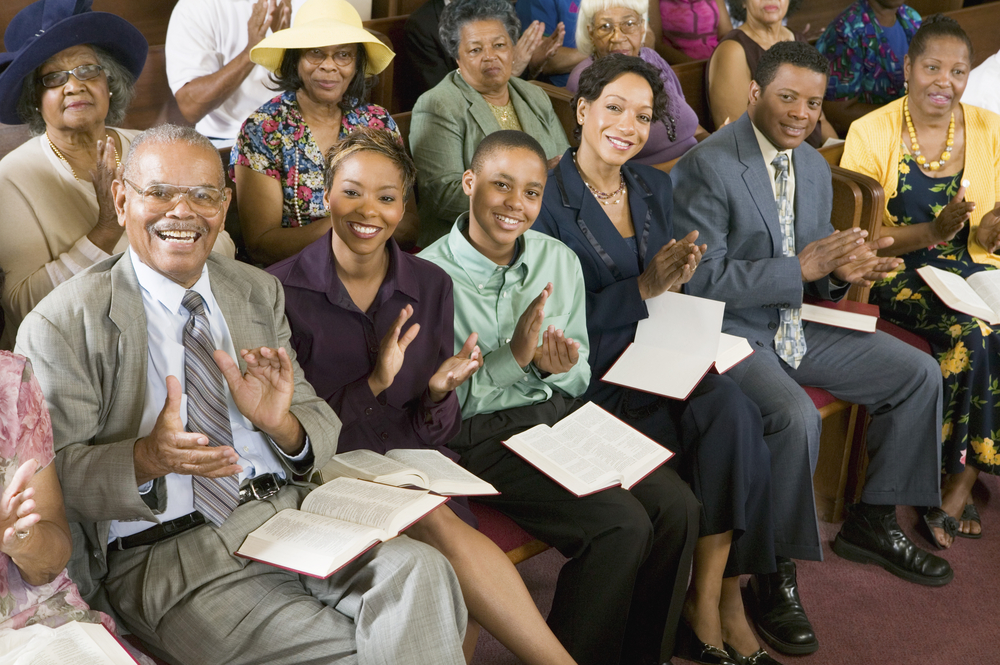
I went from one member’s house to another, and eventually, I was molested, but I couldn’t tell anyone because I was too young to understand what happened. When I grew older and understood it, I blamed my parents for not being there for me. If they had, I probably would not have been in that situation. But they had the ministry in their heads and forgot their little daughter at home.
Oh, my father loved the church members. He would be lacking school fees for me, but would have money for the members. Sometimes, I didn’t even see him as my dad, just the pastor.
As a pastor’s child, too much was expected from me and I hated it. I was to be involved in every children’s program, do Bible recitation, sword drill and so many things I was not interested in but still had to perform the best. Whenever I fumbled, I was scolded by my father for disappointing him and embarrassing him before the whole congregation. My siblings were in school or married, and I was the only one at home, so I had nobody to cry to, except my mother.
I was also punished for things that had nothing to do with me. For example, when deacons had issues with my dad, they’d come to flog me. I was the scapegoat for all the punishments they couldn’t dole out to my dad, all the things they couldn’t say to him. I didn’t get it at first. But I spoke out to my mum and she put two and two together.
What I enjoyed the most about being a pastor’s child was the food that came in from members. I also got connections that went a long way in life. But to be honest, I feel that I could easily get some of these things as an ordinary member.
There are misconceptions about pastors children being the most spoiled. I’ll tell you the truth: I think I fit that bill. There are so many things I have done and still do that, as a pastor’s child, will make you shocked. Back then, I couldn’t do any of these things because the pastor’s child identity hung over me. I couldn’t talk to boys because people would report me, and I couldn’t talk to the girls, because they didn’t want to make friends with the pastor’s child.
There was also the constant transfer from church to church. I changed schools so many times and couldn’t even keep permanent friends. I didn’t know where I belonged. I could have a friend, and in 3 months, we’d have to move and I would have to start the whole process all over again.
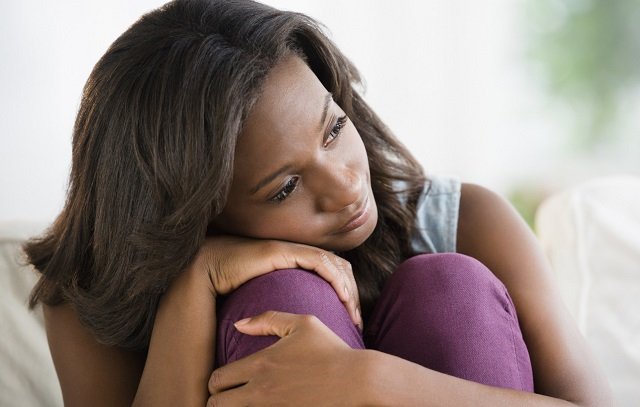
If my dad wasn’t a pastor, I think he still would have been a terrible father and husband. Perhaps being a pastor just helped him manage it. He has terrible eye service, doing things for people to see and praise him, but doing the opposite at home. I think my life would have been a lot better if he wasn’t my dad at all. It’s just him as a person, I guess. And I’m not the only one who feels this way. I guess my mother did too, and that was why she left him eventually.
Lolade.
I grew up in a very conservative home. The kind of conservative that focuses on spiritual wickedness, etc. And while it might seem tough, the advantage is that I grew up with people who knew the Lord, had a solid foundation of the Bible, and who gave me a moral compass for my life as defined by the tenets of our religious doctrine.
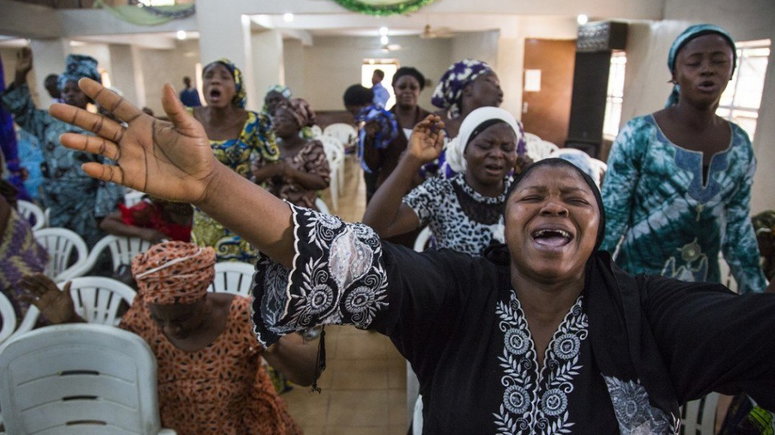
As a pastor’s child, I saw how my family had to bear the brunt of sacrificing. If your parents have the heart for gospel or church, you’d sacrifice personally. Money that could have been used to do stuff at home was used to meet the need of a member, and we had to bear the consequence of this sacrificial giving. The complaint was always that there was no money, no money. Now, as an adult, I see that it had to be done and that there’s no sacrifice that goes unrewarded. God always rewarded our labour of love.
And yes, I am aware of the misconceptions. Some people have unrealistic expectations of how upright you should as a pastor’s child. Some others believe that we are the worst pretenders because we are spoiled. I have had to deal with both sides of this narrative. I think that at the end of the day, we have to find our path regardless of the misconception and what people project on you.
For starters, I had to find God for myself. I had been a pastor’s child for so long and yet didn’t know God until I was twenty-one. I’m currently twenty-four. I left religion and found a relationship with God, and by doing this, I got answers to questions that religion could not and did not answer for me.
At the end of the day, the pastor is a man, and the pastor’s children are just like every other person who has to deal with every other challenge life throws their way. But the advantage for us is this: we have a solid backing from the Bible, a solid scriptural foundation, and we have a worldvew that is framed by the gospel which can be a good thing or a bad one, based on how your home was, growing up. But yes, I am thankful for the family I was born into.
Chidi.
I thought I had it worse as a pastor’s child. I should know better than to say mine was more than someone’s or less because trauma is trauma. My dad is a pastor and my mum a deaconess, so people have always expected perfection from my siblings and me. I soon learned that being called “pastor’s child” is more of an insult than a good thing and I hated being called that.
My dad was never the type to force us to do anything in church when I was younger, I did all that on my own. I taught toddlers’ class, was in the choir, drama team and I think to a degree I even loved doing those things. Until I started to fully come into myself. That is, I’ve always been a sort of tomboy and queer, but in 2016/2017 I realized that I was gender non-binary. I wanted to be addressed with a different name because it didn’t feel like me anymore, different pronouns, I refused to wear dresses to church and I wanted my chest flat so I got a binder and my father started to lose his shit. To crown it all, I became agnostic. When you’ve seen how the church is run, the dirty politics that goes on, the irrelevant things people are punished for, the stealing, lies and manipulation, your sense will tell you to flee.
Last year during the lockdown, my father told me that God said I should cut my locs. It’s silly but that was when I knew that there would be no going back to any god. When I’m at home and in a good mood I follow my dad to church and create stories in my head the entire time. Since last year, I only went to church once.
I feel sorry for my dad because I know people talk and it maybe reflects badly on him but honestly, I don’t care anymore. He has the title, I am just the unfortunate sperm that has survived for way too long.
Godwin.
I was not born a pastor’s child. My dad worked as an accountant and earned a lot until 2008/9 when he said he got the call of God to be a pastor. He quit his job, went to pray on the mountain with 14 days of dry fasting. He came back very haggard. After he recovered, he went to Abuja to see a pastor who has the biggest influence on him. He spent two/three days there, and returned, ready to take on the duty ahead. And as his child, this meant that my life and my siblings’ lives would have to change.
We were held to a higher standard than the other children. “Pastor’s children” was a title that was held over us. I felt like I was not in control of anything. I was a child and could not be in total control, but even then, I was not allowed any control at all. My entire life was like being tethered to a rope. At first I felt loved by the community of members and the way they asked questions and cared for us, but when I became a teenager, the whole thing felt stifling and the community itself seemed intrusive, especially with regards to certain questions they asked and their attempts to crack my privacy.
Whenever we were reported to him, my dad would discipline us. He feared what people would say and he tried to keep us in a straight line with the cane. Once, he sat us down and tell us a Bible story about Dinah, Jacob’s daughter who kept the wrong company and was lured and raped. When he was done, he prayed with us. After the prayer, he brought out the cane and flogged the living daylights out of us.

Day after day, I felt more resentful of him, and of the community. I had fallen out of love with doing things in church, but I kept doing it to keep up appearance. Finally, he moved to Abuja and it felt like a huge load was lifted off me.
But this relief was not enough to stop my religious apathy. When I got to university, the ship of my interest towards religion had already sailed. I cared very little. My dad still believes God has destined me to be a pastor and I anticipate future disagreements with him, because, after university, I don’t know when I’ll step into a church, especially now that I am even questioning God.
To be honest, it was nice to have the huge church family at first. But at some point, I had had my fill. I now felt restricted and oversaturated. Also, there’s something about how people respect pastors and place them highly, but you as their child who lives at home with them sees how very flawed they are. My dad makes judgements about people, he gets angry, and this is the same man people hail, the same man who preaches against those things. The images do not align.
Another thing I find impossible to overlook was how, when my father quit his job to become a pastor, our income went down and living conditions changed. We used to live very comfortably, all of a sudden we began to manage because of one decision by one person. The entire thing has made me tired of religion and my dad. Maybe as I grow, I will understand the motivation that led him to those things.


